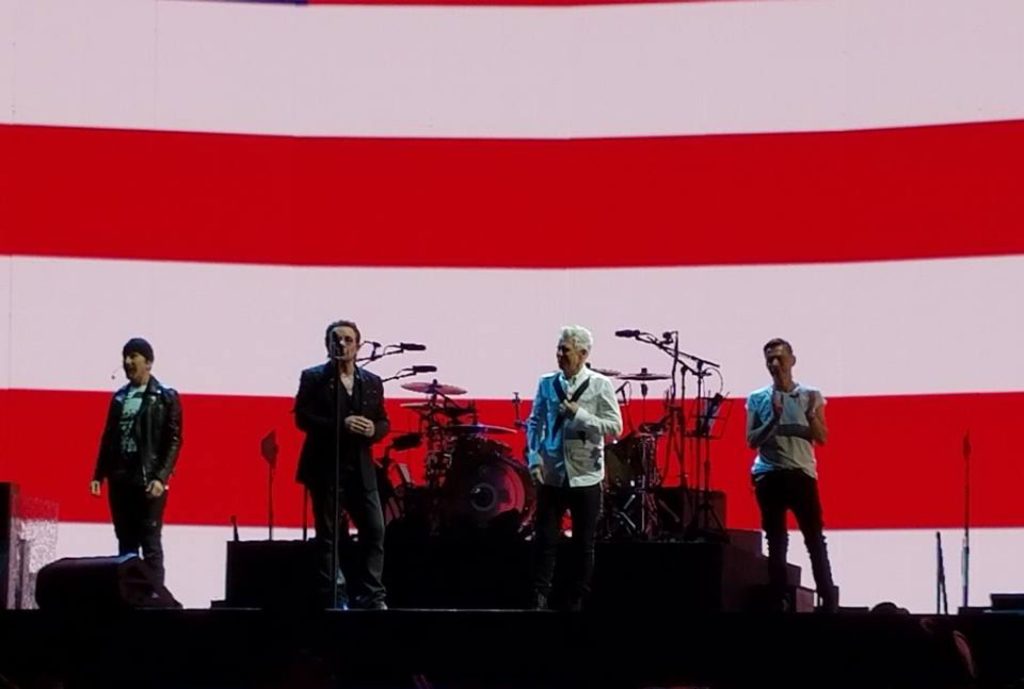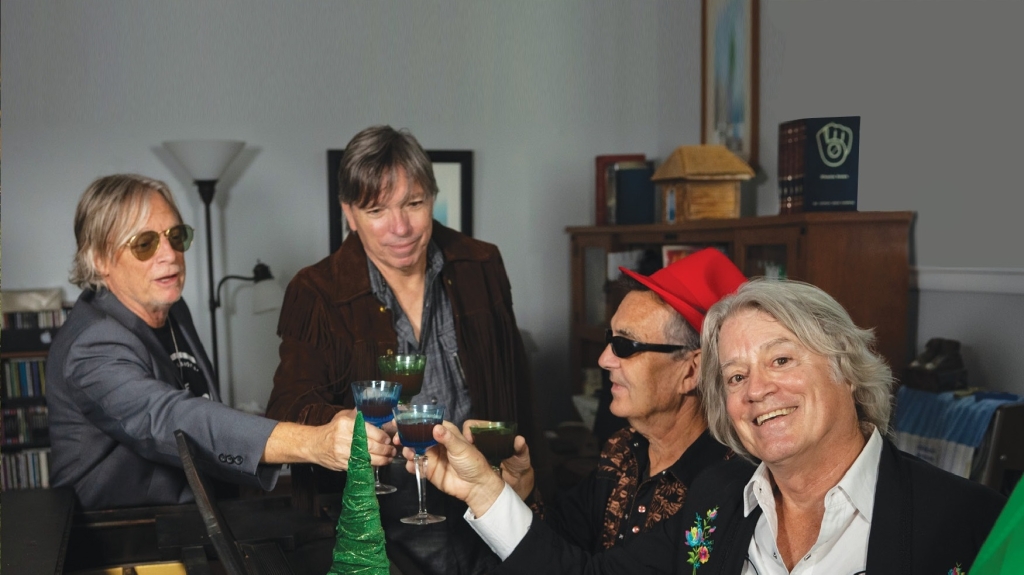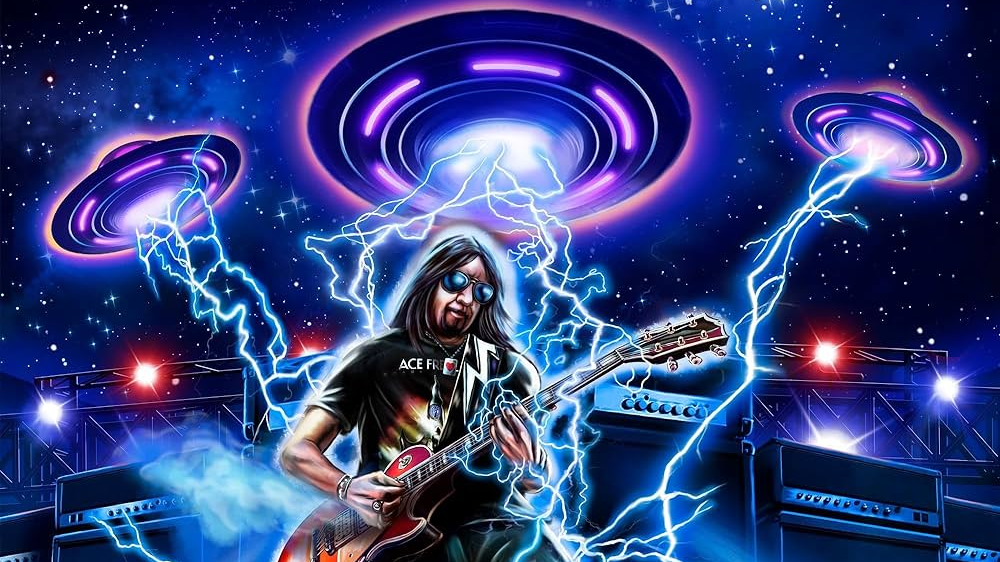
Ex-Quiet Riot bassist Chuck Wright didn’t set out to make a solo record, but, after hearing the project in full this week, I can say with total confidence that he made the right call. What we hear throughout these 11 tracks is the sound of an artist tapping into the deepest recesses of his creative subconscious to give the listener an experience that is beyond anything else he’s done before. He writes the songs, plays multiple instruments, and spearheads the production while simultaneously balancing contributions from the litany of musical friends he’s made since debuting on “Metal Health” back in 1983.
If all you know is his ’80s output, consider picking up a physical copy of the album and see for yourself just how far beyond the expected his musical reach goes. I caught up with him recently to discuss the project, so, if my spiel didn’t sell you, perhaps his will.
MNOD: Tell me how the concept for “Sheltering Sky” came about.
Wright: I never intended to make a solo record, but the pandemic changed things. It was a weird feeling when all of these bustling cities turned into apocalyptic zones and I ended up writing ‘The Weight of Silence’ to capture what was happening. I wasn’t writing for anyone except myself initially and never intended to release anything until Cleopatra Records wanted to put it out. They’re a fantastic label, because they don’t meddle and they allow artists to be themselves. There are elements of prog, funk, fusion, and other things on here that people may not expect from me, which is another thing I love about being able to be in charge of my own project. I had a lot of time to focus on every aspect of this album, so I think it’s solid from top to bottom. I started hosting a Jam night at the Whisky here in Los Angeles at a time when DJs were taking over the scene and that put me in touch with a lot of talented musicians, as well, so I had a lot of people willing to contribute to these songs. I have 41 guest performers in all. People like Troy Luccketta, Derek Sherinian, and Lanny Cordola. When it comes to the thematic content of the album, issues like riots, unrest, and human rights are important to me, so I wrote a lot of lyrics with those things in mind. The video I made for ‘Throwing Stones’ has a very clear message to it that I think a lot of people can get on board with.
MNOD: I watched the video earlier and it’s certainly moving compared to a lot of what gets released from the mainstream in 2022.
Wright: I grew up in the Vietnam era where people got involved and stood up for what they believed in. I actually just did a benefit for a family that relocated to LA from Ukraine. Of all the bands I’ve been in and records I’ve played on, I think this album speaks to who I am morally the most and I want it to be an important part of my legacy. I loved being involved in every aspect of the production, because I was able to write something and then think about who would sound good playing or singing on it. For example, ‘Army of Me’ features Whitney Tai, who is a tremendous singer and a good friend of mine. We also did “Giving Up the Ghost” and “Time Waits for No One” together, which are excellent tracks. I saw one early review of this album that referred to it as Primus meets Stevie Wonder, so I guess we’ll see what other people have to say about it.
MNOD: Why did you feel that it was time to leave Quiet Riot when you did?
Wright: I started on the road in 1981 and never really stopped. The band wasn’t happening yet at the time, but then everything blew up. No one expects the first project you’re a part of to sell 10 Million copies. Plus, Rudy Sarzo decided to come back and I was ready for a new chapter.
MNOD: Taking this album on the road would likely be a massive undertaking, but have you thought about playing a few shows here and there?
Wright: I could definitely take it on the road if I had a Roger Waters budget, but the reality is that it would be too difficult to facilitate all of the guests who played on this album. Unfortunately, the revenue stream for artists has changed so much, but it’s not like the old days anymore where labels would give you a lot of support. Bands got a lot more time to develop back then than they do now. U2 and Springsteen would probably get dropped after one album today.
MNOD: Of all the high profile bands you’ve been involved with, which of them do you think should have been much bigger than it was?
Wright: Definitely House of Lords. We were a killer band, but we were stuck on a label known for country music that had no idea what to do with us. We did a cover of ‘Can’t Find My Way Home’ in 1990 that was really catching on, but then things just didn’t work out. Blackthorne was another band that was OK, but, for me, I’m not as in love with that one due to Bob Kulick creating the bass parts for me. There wasn’t a ton of freedom to do my own stuff. The sad part for a lot of bands now is that radio has ruined the business by taking the DJ completely out of the equation. DJs used to be able to curate their own playlist and that’s how you would discover new music or hear things that you wouldn’t hear elsewhere, but it’s not like that anymore. I remember Melody Maker magazine being a significant way to break bands, as well.
MNOD: Giuffria earned the coveted spot of opening for Deep Purple on the ‘Perfect Strangers’ tour. What was that experience like for you at the time?
Wright: For being our first tour, the feeling was indescribable. Our first show went so well that they threatened to kick us off the tour if we didn’t make some changes. Apparently, Blackmore wasn’t happy with how much the crowd love our set, so they told us we had to take out our last song, cut our set time from 45 to 27 minutes, and remove the solo. They also cut our sound and lighting in half, but we hung in there and continued to kick ass. I remember opening for Foreigner just after that when they had ‘I Want to Know What Love Is’ out and they treated us great. The Purple was both good and bad, really. Having idolized Blackmore when I was starting out, it was disappointing to say the least.
MNOD: Thanks again for your time and best of luck with the album.
Wright: I appreciate you getting the word out. I think someone uploaded the entire album to YouTube already, but people should go to Amazon or wherever they buy music and get the hard copy.
Chuck Wright’s Sheltering Sky is available now wherever music is disseminated, but do us all a favor and pay for a physical copy.






Leave a comment